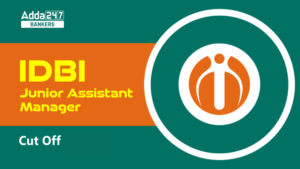Dear IBPS Clerk Aspirants,
The reasoning is a game of wits and presence of mind! Yes, it is true and it might seem as the greatest of the challenge after English Section’s surprises but yet this one can easily be dealt with. You just need correct practice and hardwire your brain to quickly make decisions about what to attempt and what to leave. And for same we are providing you questions of Reasoning Question and Answers. Solve these to Practice latest pattern reasoning question for bank exams.
Directions (1-5): Each of the questions below consists of a question and two statements marked I and II given below it. You have to decide whether the data provided in the statements are sufficient to answer the question. Read both the statements and give answer.
(a) If the data in statement I alone are sufficient to answer the question, while the data in statement II alone are not sufficient to answer the question.
(b) If the data in statements I alone are not sufficient to answer the question, while the data in statement II alone are sufficient to answer the question
(c) If the data either in statement I or in statement II alone are sufficient to answer the question
(d) If the data even in both the statements I and II together are not sufficient to answer the question.
Q1. How many sisters does S have?
I. M and T are sisters of K.
II. D is husband of B, who is mother of K and S is child of D.
Q2. Among P, Q, R, S, T and V, who is the tallest?
I. P and S are taller than Q, T and V but none of them is the tallest.
II. P is taller than S but shorter than R.
Q3. On which date in January, Pinku celebertaes his birthday?
I. Pinku’s sister correctly remember that Pinku’s birthday is in second week of January .
II. Pinku’s sister correctly remember that her birthday is on last day of second week of January month.
Q4. How is ‘iron’ written in a code language?
I. ‘iron metal more costly’ is written as ‘ho na pa da’ in that code language.
II. ‘buy more iron things’ is written as ‘na ka ta da’ in that code language.
Q5. What is Deepu’s position from the left end in a row of children?
I. Thee are ten children between Deepu and Rohan
II. Rohan is seventh from the left end of the row of children.
Directions (6-10): Study the information and answer the following questions:
In a certain code language
“party said this might” is coded as ” B#6 H@5 G@5 G#6 “
“bill has been passed” is coded as ” O@5 H#4 M@5 H@7 “
“more and six girl” is coded as ” I@5 M#4 C#4 I@5 “
Q6. What is the code for ‘supported’?
(a) G#10
(b) H#10
(c) G#1
(d) G#11
(e) None of these
Q7. What is the code for ‘asking’?
(a) H@17
(b) K@7
(c) H#7
(d) H@7
(e) None of these
Q8. What is the code for ‘select’?
(a) G@17
(b) L@7
(c) G@7
(d) G#7
(e) None of these
Q9. What is the code for ‘certain’?
(a) G#18
(b) G@8
(c) H#8
(d) G#8
(e) None of these
Q10. What is the code for ‘remain’?
(a) I#7
(b) I@7
(c) I@17
(d) H@7
(e) None of these
Directions (11-15): Study the following information and answer the questions given below.
Eight persons A, B, C, D, E, F, G and H are sitting around rectangular table. Four of them are sitting on middle side of rectangular table, while other four are sitting on the corner side of table. All of them are facing towards the center of the table. All of them alloted different key number from 2 to 9.
A sits third to left of one whose key number is multiple of any of the given two different key numbers. Two persons sit between A and H whose key number is prime number. H does not sit any of the middle side of the table. The key number of one who sits digonally opposite to H is multiple of key number of H. No any two person whose key number is even number sit adjacent to each other. B sits opposite to G and none of them sits adjacent to A. F sits third to left of C. F does not sit adjacent to A. The key number of F is non prime number. H’s key number is not 3. G’s key number is one more than H’s key number and they are immediate neighbour of each other. C’s key number is perfect square. B’s key number is one more than C’s key number. D sits second to left of E whose key number is one less than key number of F.
11. Who among following has key number 6 ?
(a) B
(b) C
(c) D
(d) Either (b) or (c)
(e) Either (b) or (a)
12. Who among following sits second to left of D?
(a) B
(b) C
(c) A
(d) E
(e) Cannot determine.
13. Whose key number is 9?
(a) B
(b) C
(c) D
(d) E
(e) F
14. What is key number of H?
(a) 2
(b) 3
(c) 5
(d) 7
(e) 9
15. How many persons sit between B and F, when counted from left of B ?
(a) Two
(b) Three
(c) One
(d) Five
(e) Six
You May also like to Read:
“Share Your RRB PO Interview Experience at contact@bankersadda.com”





 GA Capsule for SBI Clerk Mains 2025, Dow...
GA Capsule for SBI Clerk Mains 2025, Dow...
 The Hindu Review October 2022: Download ...
The Hindu Review October 2022: Download ...
 IDBI Junior Assistant Manager Cut Off 20...
IDBI Junior Assistant Manager Cut Off 20...





